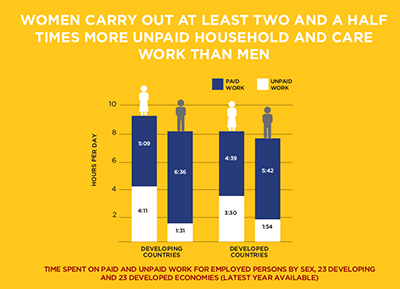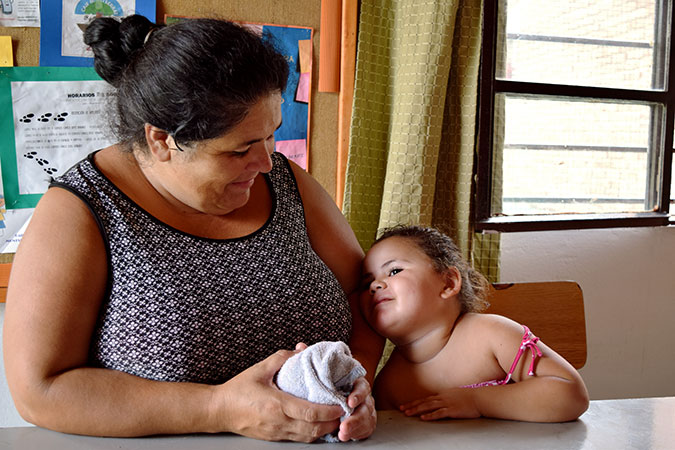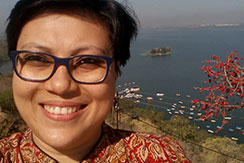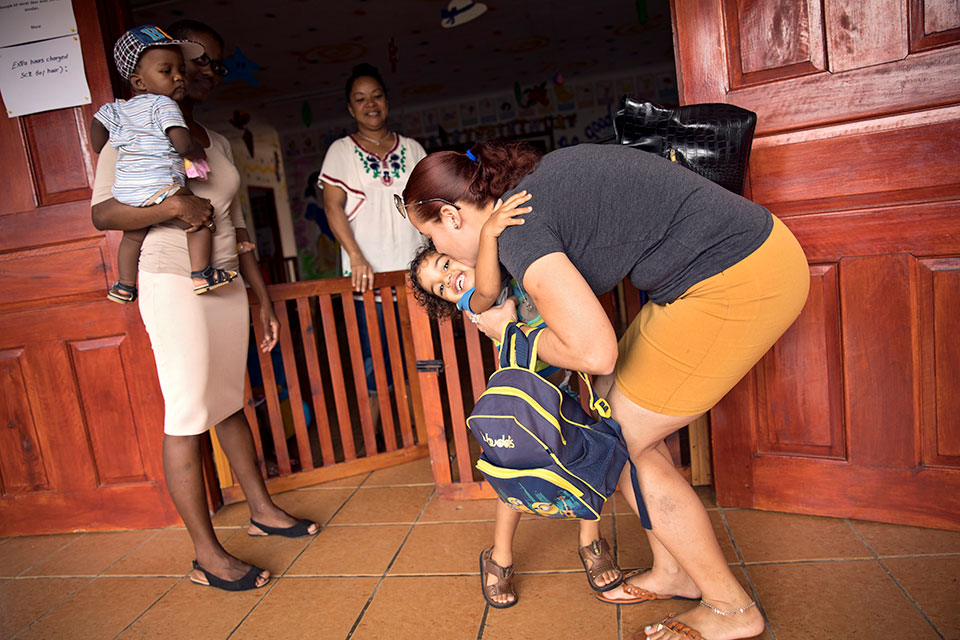Redistribute unpaid work
From cooking and cleaning, to fetching water and firewood or taking care of children and the elderly, women carry out at least two and a half times more unpaid household and care work than men. As a result, they have less time to engage in paid labour, or work longer hours, combining paid and unpaid labour. Women’s unpaid work subsidizes the cost of care that sustains families, supports economies and often fills in for the lack of social services. Yet, it is rarely recognized as “work”. Unpaid care and domestic work is valued to be 10 and 39 per cent of the Gross Domestic Product and can contribute more to the economy than the manufacturing, commerce or transportation sectors [1]. With the onslaught of climate change, women’s unpaid work in farming, gathering water and fuel is growing even more.
Policies that provide services, social protection and basic infrastructure, promote sharing of domestic and care work between men and women, and create more paid jobs in the care economy, are urgently needed to accelerate progress on women’s economic empowerment.
In Uruguay, care law catalyzes change, ushering services and breaking stereotypes
Uruguay’s Care Act has changed the concept of “care”. Under the new law, all children, persons with disabilities and elderly persons, have the right to get care. The state not only provides care services, but also guarantees their quality by providing training and regulations. For Soledad Rotella, its impact is immediate—the mother of a two-year-old daughter can now get a full time job without risking her child’s wellbeing.
It is the day before the school year begins at the Child and Family Care Centre of Tres Ombúes, a neighborhood west of Montevideo. Soledad Rotella is mother to one of the 89 children in the neighborhood who attend the centre yearly.
Rotella has a 21-year-old son and two daughters aged 20 and 18 years. And then there is Kiara—she is only two years old. "I could not afford to put my older children in daycare because at that time you had to pay for it, so I had to leave them alone,” Soledad recalls. "Sometimes, to bring food to the table, that’s what I had to do." Read more»
Video: What is the real value of unpaid work?
Around the world, women do the vast majority of the unpaid work, including child care, cooking, cleaning and farming. This unpaid work is essential for households and economies to function, but it is also valued less than paid work. UN Women expert Shahra Razavi reveals the real value of unpaid care, and how we can reduce the burden on women by tackling entrenched stereotypes.
Other voices:
Expert’s take: Making unpaid work visible creates livelihoods for rural women
Subhalakshmi Nandi, who leads the women's economic empowerment portfolio at UN Women’s Multi Country Office for India, Bhutan, Maldives and Sri Lanka, explains how reducing and redistributing unpaid work enables women's continued contribution to the economy, society and the environment.Read more»
Photo essay: Changing world, changing work
Women make a huge economic contribution that fills gaps in services. Why is it unshared and uncounted? See the photo essay»
Notes
[1] Women’s economic empowerment in the changing world of work, Report of the Secretary-General, E/CN.6/2017/3, December 2016



